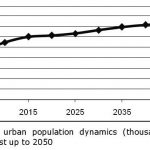The Constitution, Negotiation and Representation of Immigrant Student Identities in South African Schools
 ‘Think, instead of identity as a “production” which is never complete, always in process, and always constituted within, not outside representation’ (Hall, 2000).
‘Think, instead of identity as a “production” which is never complete, always in process, and always constituted within, not outside representation’ (Hall, 2000).
Abstract
The easing of legal and unauthorized entry to South Africa has made the country a new destination for Black immigrants. As this population continues to grow, its children have begun to experience South African schools in an array of uniquely challenging ways. For these immigrant youth, forging a sense of identity may be their single greatest challenge. Accordingly, this study asks how do immigrant students construct, negotiate, and represent their identities within the South African schooling context. Findings were multifold in nature.
First, although immigrant students’ ease of assimilation into the chosen reference group was to some degree sanctioned by their phenotypic racial features, their attempt at ‘psychosocial passing’ was politically motivated. Second, immigrant students did not readily classify themselves according to skin pigmentocracy. Third, the majority of immigrant students heightened their ethnic self-awareness in forming their identity, but also assumed hyphenated identities. Fourth, immigrant students were not seen as having an identity, but rather as being ‘plugged into a category with associated characteristics or features’. Fifth, immigrant students forged a ‘continental identity’. And sixth, the selfagency of immigrant students was twofold in nature; not only did they want to improve their own condition, but there seemed to be an inherent drive to improve the human condition of others.
Household Governance and Time Allocation – Four Studies on the Combination of Work and Care
 One isn’t enough, but both is too much; these words by a female blue-collar worker express the current dilemma of many employees in combining work and care. In all modern societies couples face an increasing need to arrange the combination of work and care in a new way.
One isn’t enough, but both is too much; these words by a female blue-collar worker express the current dilemma of many employees in combining work and care. In all modern societies couples face an increasing need to arrange the combination of work and care in a new way.
The traditional household model with a male breadwinner who is responsible for paid work, career and income, and his wife, who takes care of all household obligations, is losing its relevance, and fits the values and preferences of the majority of couples less and less well. Over the past decades women have increasingly entered the labour market and the number of two-earner couples has been growing. Gender differences in educational achievements and earning capacities have decreased. The values and preferences of couples put great weight on an egalitarian relationship and equal engagement of both partners in work and care.
Besides the traditional male breadwinner model, a wide variety of different earning models and household constellations has emerged. In some countries, like the Netherlands or Germany, the majority of couples are two-earner couples.
Effective PhD Supervision – Mentorship and Coaching
 The complete book online
The complete book online
Chapter One: Chapter One: Introduction
Chapter Two: Guidelines for Supervisors
Chapter Three: Guidelines for Mentors
Chapter Four: Coaching: Charting your own Path
Chapter Five: The Relationship between PhD Candidate and Supervisor
Chapter Six: A Holistic Approach to PhD Support
Chapter Seven: Bibliography and Recommended Reading
Appendices and Acknowledgments
Effective PhD Supervision – Chapter One: Introduction
Foreword by Ms. M. Metcalfe
I am very pleased to present this second edition of the South Africa-Netherlands Research Programme on Alternatives in Development (SANPAD) Supervision Workbook.
The Workbook is yet another contribution by SANPAD towards improving the quality of supervision of doctoral students in South Africa. The Department of Higher Education and Training is particularly encouraged by these efforts, as they continue to enhance the overall quality of our PhD graduates and future academics. PhD qualifications are generally considered to be the first real entry points into the rigorous world of research. As a result, the focus on improving the academic experience of students at this level through improved supervision and mentoring will go a long way towards increasing the overall numbers of PhD graduates at our institutions.
It has become clear that although the number of students enrolling for PhD studies in South Africa has increased over the years, a large proportion of these students do not complete their studies. The reasons for this are many, among them the relationships between supervisors and their students and the overall quality of supervision. The difficulties often stem from the fact that not all supervisors have been properly trained for supervision duties. The mistake that is often made in higher education institutions across the globe is to assume that every academic, by virtue of his or her experience in teaching or research, knows what is required to supervise postgraduate students. Studies show that this is not usually the case and, in fact, academics need proper training and support if they are to effectively carry out their supervision responsibilities. This Workbook will provide a useful guide for both supervisors and PhD candidates on how to structure their working relationships into better interaction and supervision experiences.
Effective PhD Supervision – Chapter Two – Guidelines for Supervisors
It is well recognised that despite the fact that support for postgraduate students at various levels is available in South Africa, a large and unacceptable proportion of such postgraduate students do not complete their studies. Some of the reasons for this have been ascribed to:
– A lack of understanding by the students and a failure to communicate by the institution as to the standard of work required for a particular degree
– Allocation by the institutions of supervisors who are generally not interested in the topic but are forced to supervise as part of their academic commitments
– Difficulties in conceptualising the programme the student is in and a lack of clear guides – generally replaced by vague requirements
– Differences between supervisors and their approaches to supervision
– Lack of supervisory policy or standards at the departmental, faculty or institutional level
– A general lack of training for supervisors – institutions do not have a formal or informal supervisor training programme
– Time pressures and interruptions placed on supervisors by their institutions, which prevent optimal interaction with postgraduate students
– Poor record-keeping concerning supervision – supervisors do not formalise their interactions with students
– Unclear or the absence of any agreements between supervisors and students and the institution.
Effective PhD Supervision – Chapter Three – Guidelines for Mentors
The supervision of postgraduate students generally follows institutional guidelines such that policies or procedures (sometimes confusing and contradictory) are in place to produce PhD graduates. From the students’ perspective, on the other hand, the path leading to the doctorate is unclear and filled with all kinds of hurdles and uncertainties. Most importantly, and especially at the early stages of the degree, support at all levels is a necessity.
The concept of mentoring is a universal phenomenon and certainly not a new one! In almost all cases the challenges faced by post-graduate students appear to be dealt with more effectively, or rather with a greater sense of personal satisfaction, when such individuals have someone to rely on. During the course of their postgraduate studies, and particularly in the early stages, students are required to make an intellectual and, more importantly, an emotional leap from being Bachelor’s and Master’s students to becoming PhD candidates. In some instances, as with individuals with professional qualifications, the primary degree is earned without much exposure to formal instruction in research, ethics and knowledge of the requirements for proceeding towards a doctoral qualification. Primary degree supervision typically consists of structured courses, with the student enjoying direct instruction and regular contact with the team of lecturers concerned. PhD candidates are, however, expected to be more independent, self-sustaining, with little access to their supervisor and less structured than in their prior degree. For the PhD student, contact and feedback with supervisors depend very much on the rate of progress of the individual student concerned and on the commitment of the supervisor to the process.


